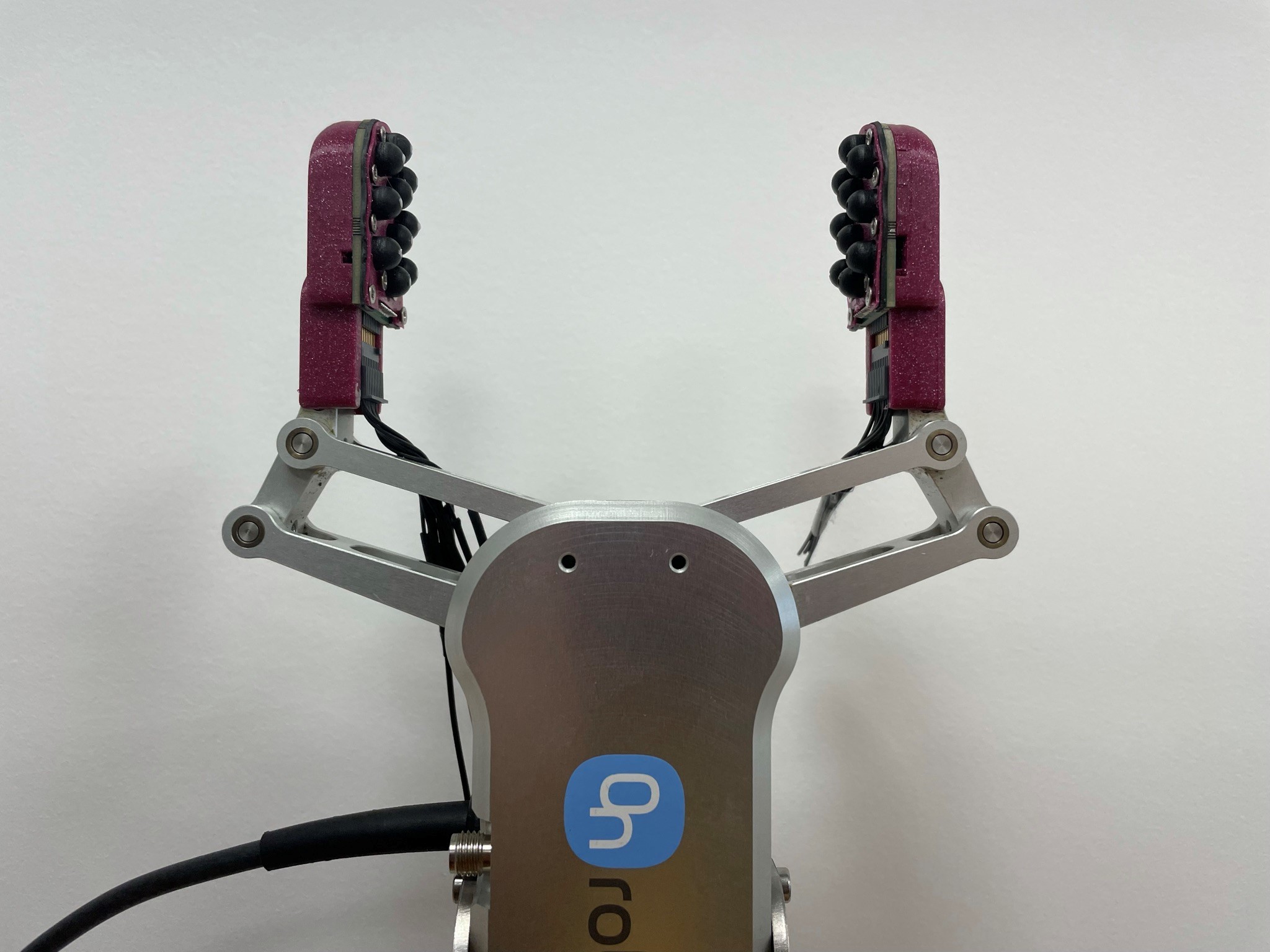Light Touch Robotics
Giving robotic grippers a sense of touch, to make them more versatile, enabling one gripper design to perform a diverse range of industrial manipulation tasks.

In Brief
- Challenge: Future Digital Challenge
- Challenge Type: National Challenge Fund
- Status: Active
The Challenge
Ireland lags far behind most of its European neighbours in automating its industries even though manufacturing and logistics make up more than 40% of Ireland’s economy. Much of this activity is conducted by small-to-medium enterprises (SMEs) for whom automation may be too expensive and require too many separate and unique solutions. In this project, we want to help automate manufacturing, especially automating the handling of physical products. The development of versatile robotic grippers that can handle a diverse range of products, with differing sizes, weights, and shapes, would reduce the cost of automating difficult manipulation tasks.
The Solution
Our solution will be underpinned by a disruptive tactile sensing technology developed at University College Dublin with Science Foundation Ireland funding. We can arrange our tactile sensing elements to make artificial skin for robotic grippers, enabling them to feel grip and load forces, to sense slip events to trigger grip-force adjustments. We propose to use this artificial sense of touch to make smart robot grippers, removing the need for extensive customisation during installation; the gripper will just grip the object and adjust the grasp automatically. Once integrated into a wider robotic system (with robot arm and vision system), this general-purpose solution will make robotic automation more accessible for Ireland’s many SMEs, ultimately helping Ireland transition its industries to a digital future.
The Team
- Team Lead: Dr Stephen Redmond, University College Dublin
- Team Co-Lead: Dr David McKeown, University College Dublin
Societal Impact Champion
- Domhnall Carroll, Digital Manufacturing Ireland